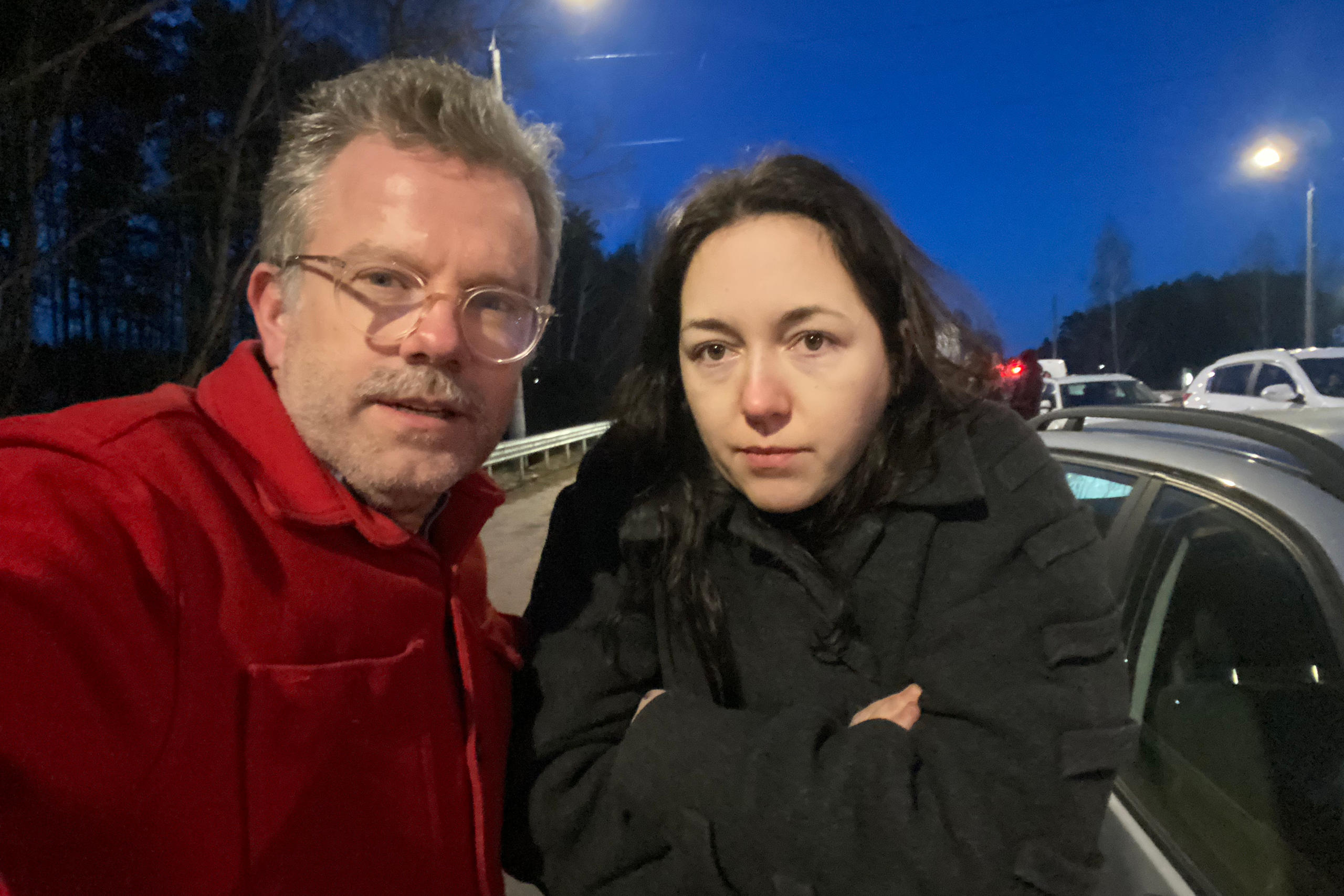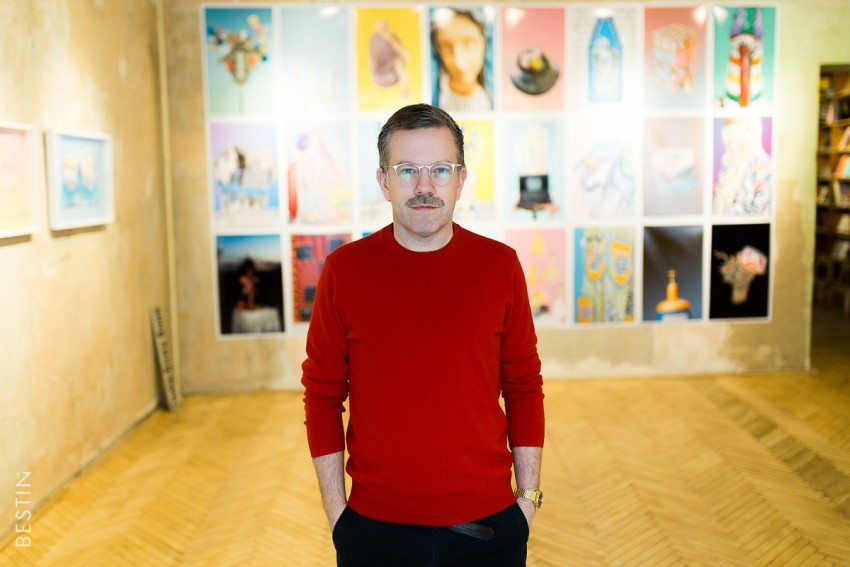
Swiss filmmaker heads back to war-torn Ukraine

Swiss expat Marc Raymond Wilkins was determined that he and his Ukrainian wife, Olga, would stay in Kyiv, no matter what. But when war broke out, they fled. Now the couple are back in Ukraine.
“I never thought I would end up in a war in my lifetime,” Wilkins, 45, said on the phone. With a car full of petrol, their dog and a spare canister of petrol in the boot, they left Kyiv on the day of the Russian attack. They drove via Warsaw to Berlin, where Wilkins’s sister lives.
Wilkins was born in Switzerland and grew up in Germany. He has lived in Kyiv for six years. Last autumn he and Olga got married. Now his worldview has changed overnight. The left-wing pacifist is seriously thinking about defence.
“It’s not about some oilfields or economic interests, but about the right to self-determination,” he said.

When they arrived in Berlin, the couple were initially relieved. But then they experienced huge emptiness and bad consciences about leaving friends and family behind. They suddenly felt a desire to fight back.
“We couldn’t just sit in Berlin, drinking coffee and not doing anything,” said Wilkins, adding that the whole situation was so surreal. They started thinking: “We’re abandoning our home to fate while others are now defending it for us.”
Swiss Solidarity has launched a fundraising campaign to help cope with an expected humanitarian crisis in Ukraine. Donations can be paid via postal account 10-15000-6, adding the words “Crisis in Ukraine”.
In a first phase, the money will be used to help refugees in countries neighbouring Ukraine, notably in Poland. Swiss Solidarity works with charities and aid organisations, including Caritas, HEKS/EPER, the Swiss Red Cross, Helvetas, Medair, Médecins Sans Frontières and the Terre des hommes foundation. If possible and if necessary, aid projects will also be supported in Ukraine. The money goes exclusively towards humanitarian aid.
Swiss SolidarityExternal link is an independent foundation. It was born from a programme by the French-language public radio and is now the humanitarian arm of the Swiss Broadcasting Corporation, the parent company of SWI swissinfo.ch.
Not needed in Poland
Wilkins and his wife own two apartments in Kyiv. They are art collectors. She works in software; he is a successful film director and a member of the Swiss Film Academy.

Wilkins also runs a contemporary art gallery, The Naked RoomExternal link, in the Ukrainian capital. It is set to represent Ukraine at the Venice Biennale in 2022.
On the fourth day of the war, Wilkins and his wife reached a decision: they wanted to go back to the Polish-Ukrainian border to help. They arrived there in the evening. But when they got to Przemyśl, everything was already “super organised” by neighbourhood helpers, associations and charities.
“It really moved us to feel this humanity in the crisis,” Wilkins said. They too were offered help by text message. On their Ukrainian mobile phone numbers they received information on where they should turn for assistance.
So they were not needed there. They decided spontaneously to return to Ukraine. Wilkins’s siblings – three out of four live in Switzerland – expressed understanding. “But of course they would have preferred me to go to Switzerland,” he said.
Back to a country under siege
Thinking of Switzerland, he is happy that the government has decided – belatedly – to implement European Union sanctions against Russia.
“For me it was awful that my home country was responding so passively,” said Wilkins, who hopes that Switzerland will soon accept Ukrainian refugees.
On the evening of the fifth day of the war, he and his wife arrived in the western Ukrainian city of Lviv. They were virtually the only people crossing the border in that direction. “On the other side of the road, we saw a line of cars 15 kilometres-long coming towards us.”
Wilkins and his wife have found accommodation with friends. The city is quiet. The shops and restaurants are open, but at the same time residents are preparing for an attack with armoured barriers. Lviv is the westernmost city in the country – Ukraine’s fortress, as Wilkins describes it.
The couple will probably offer their driving services and fill sandbags. “As I don’t speak Ukrainian and have no military experience, I won’t join the territorial defence effort,” he said. The first thing they will do is donate blood.

In compliance with the JTI standards
More: SWI swissinfo.ch certified by the Journalism Trust Initiative


























You can find an overview of ongoing debates with our journalists here . Please join us!
If you want to start a conversation about a topic raised in this article or want to report factual errors, email us at english@swissinfo.ch.